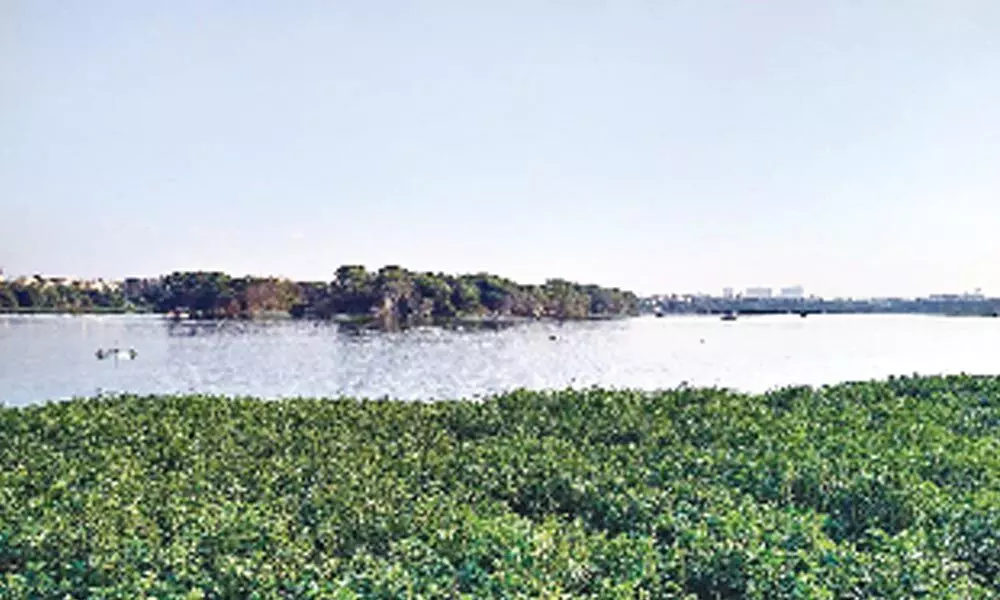Water in most Bengaluru lakes contaminated with heavy metals

Water in most Bengaluru lakes contaminated with heavy metals
Though government agencies continue efforts to restore the water quality of the lakes in the city the picture is grim. Not a single lake in the city meets drinking water standards.
Bengaluru: Though government agencies continue efforts to restore the water quality of the lakes in the city the picture is grim. Not a single lake in the city meets drinking water standards. The Karnataka State Pollution Control Board (KSPCB) classification of water quality under National Water Quality Monitoring Programme of 106 lakes and tanks in Bengaluru Urban & Rural District for December-2020 reveals that the water bodies require urgent attention of the government.
Dr T.V. Ramachandra from Energy and Wetlands Research Group, coordinator at the Indian Institute of Science's Centre for Ecological Sciences, told The Hans India that the data is not surprising as the quality of the environment (lakes and air) continue to be in poor state.
"They continue to remain in poor state as there are hardly any actions to mitigate pollutants in the system."
Quoting his research, the senior scientist explains, "Our studies in Bangalore have revealed that 98% of lakes are encroached and 96% of them are flooded with sewage and are contaminated with heavy metals due to the sustained inflow of untreated industrial effluents. This is getting transferred to the food chain and affecting the quality of food resulting in poor health (higher instances of cancer and kidney failure) among people. This only highlights poor executive mechanisms in the State with the frequent interference of corrupt and insensitive ruling class."
Ramchandra demands that the citizens' responsibility is to give a clean environment to children.
Recently, a study conducted by the CSIR-National Environmental Engineering Research Institute (NEERI) stated that conservation and upkeep of lakes need to be given top most priority.
The report, however, added out that of the 210 lakes, 189 exist and the remaining lakes were totally encroached. It goes on to say 11 of the 21 lakes in the Yelahanka zone, have excellent water quality.
According to the KSPCB report, 13 lakes in the Yelahanka zone are classified under D category and the WQI (water quality index) is unsatisfactory.
Member secretary of the KSPCB, Srinivasalu points out that both reports are correct.
"One should get into the report in detail. Both are correct. KSPCB classifies the water quality into A,B, C, D, E. The general statements made about the water quality is for the public consumption as it would be easy to communicate. Both are correct," he states.
However, he adds that at the end of the day the whole issue is that a majority of the lakes in the city are polluted and requires attention.
"The issues are sewage, solid waste and effluents getting into the lakes. KSPCB monitors the lakes periodically whereas CSIR does it only once. We should see the whole picture," the IFS officer adds.









